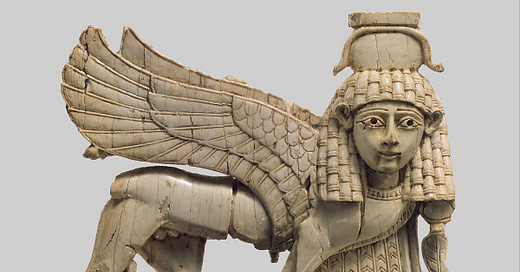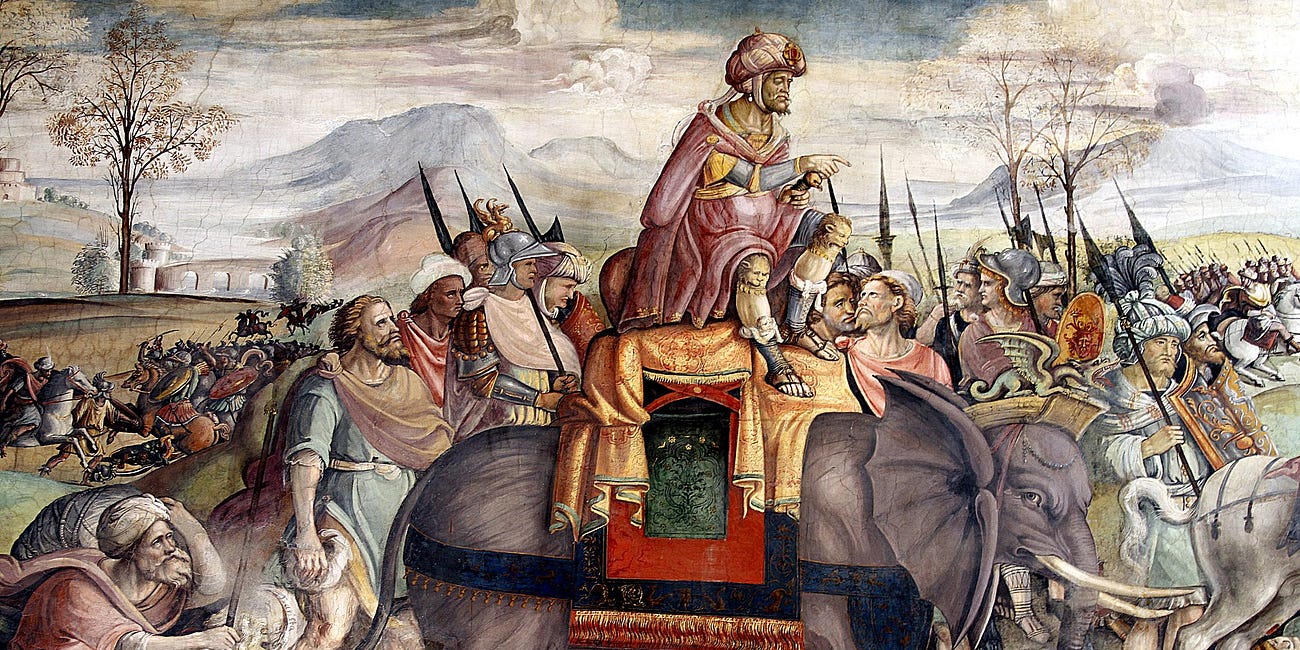What, if anything, were the Phoenicians?
Review of In Search of the Phoenicians by Josephine Quinn
Make no mistake: this is a heavy academic treatment that bristles with long proofs and recondite references. The central idea of the book is that the Phoenicians did not self-identify as a “people”, “nation”, or even an “ethno-linguistic group”. Instead, they were a multi-faceted and fractured combination of families, colonies from a rather ill-defined geographical base (in modern Lebanon, Palestine and Syria), and strongly autonomous Mediterranean city-states; they shared similar dialects, some religious practices but not others, and traded with each other out of vague kinship and the trust that engenders. Beyond these basics, Quinn takes the reader on a fascinating tour of the notion of national identity and how the Phoenicians served groups as an example from antiquity to the present.
In the first chapter, Quinn describes the modern-day uses of Phoenician, in particular how it fits into the politics of Lebanon as it struggled to emerge and then define itself as a nation state in the 20th century, i.e. to demonstrate that the Lebanese were a “people” whose origin was distinct from the Arabs of the region and hence a legitimate nation. The Tunisians (the site of ancient Carthage) made similar arguments as support for their decolonization.
From this promising beginning, the book begins an often turgid journey into the historical reality of the Phoenicians. First, from literary sources and inscriptions, she proves that the Phoenicians themselves did not normally call themselves “Phoenicians”, but were defined as such by the Greeks. Second, she painstakingly proves that they had no common name, referring instead to their respective city states. In other words, they had no common sense of national identity.
That being said, she argues, the Phoenicians did have a great deal in common, ranging from a kind of lingua franca to trade relations and religion. Her point is that the cultural similarities – e.g. cults of Baal (the Greek God Kronos) and Melqart (Hercules), which justified certain practices – they did not act as a nation and indeed could fight one another as Greek city states did. Over time, she demonstrates, they developed different rituals and observances, e.g. Carthage and other western colonies practiced child sacrifice, but those in Tyre did not.
To advance her proofs for these conclusions, there are pages upon pages where she compares coins, inscriptions, and obscure references in surviving fragments of ancient historians. This was a rewarding primer on archaeological reasoning and argumentation for me personally, but I do wonder how much it would appeal to lay readers who want a narrative of Phoenician history (for this I recommend Miles' Carthage Must be Destroyed).
In the final section, the book again becomes more interesting to lay readers as Quinn traces how the notion of the Phoenicians evolved through history. Most important in antiquity, the Carthaginians had great influence on northern Africa, if only to allow those colonized by Rome to differentiate themselves. Later, like Lebanon and Tunisia, as the states of England and later Ireland emerged, scholars and writers were arguing that their respective origins were Phoenician! (They saw themselves as traders, clever at survival, or whatever.) This is fun, but it is a bit of a slog like the rest of the book. Nonetheless, Quinn covers an astonishing range of historical and literary subjects, which makes the read eminently worthwhile.
I would recommend this book with the caveat that it is more attuned to scholars than the general reader.
A related review:
The other great classical civilization
I have always been curious about Carthage. This great power has long been defined against its adversaries, the Greeks and the Romans. Having left no real literary legacy, Carthage is like the dark matter of that period: you know it is there, but can't quite see it except as a gravitational well. And yet, it is portrayed as the




